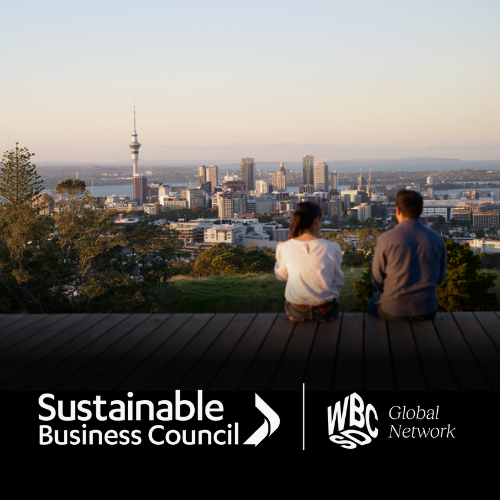What does the future of work hold?
At our Annual Council Meeting in August, SBC invited four business leaders to take part in a panel discussion on the future of work.
At our Annual Council Meeting in August, SBC invited four business leaders to take part in a panel discussion on the future of work. Watch all videos from the panel or see the individual speakers below:
Tony Gibson, CEO, Ports of Auckland, talked about balancing technological change and automation with supporting developing staff. It’s not just the machines being automated – tech transformation also applies to the potential automation of trucks, use of blockchain in supply chain tracking, and machine learning for administration tasks.
The port considers it has a social obligation to retrain staff inside or outside the organisation. For some staff, being part of the port’s Future of Work programme was the first time they had thought about what their career could look like and what their purpose was.
Amanda Tolley, Group Talent & OD Manager, SKYCITY, talked about how demand for employees has outstripped supply. This is particularly challenging for the hospitality industry where there’s a transient workforce and high turnover.
In terms of newer workers, it’s clear that younger people demand purpose over profit in their work life. They are global, socially-minded and entrepreneurial, and they seek a completely different work experience.
And, while no one can predict exactly what the future’s going to look like, businesses can help its people gain the skills to adapt to change, whether that is learning agility, collaboration techniques, or empathy.
Arihia Bennett, CEO, Te Rununga o Ngāi Tahu told us that Ngāi Tahu’s focus is on being intergenerational, and growing its own people: mō tātou, ā, mō kā uri ā muri ake nei – for us, and for our children after us.
The organisation includes over 62,000 members, 40,000 of whom are under 25 years old, so they need to be part of the conversation about what the future looks like.
For some years now, the iwi has taken groups of 13- and 14-year-olds with an interest in STEM (science, technology, engineering and mathematics) to Silicon Valley. They’re being immersed in the excitement of global innovation, as well as being supported at a local and regional level to prepare them for leadership roles.
Claire Barber, Product Director, Spark, said we shouldn’t blame ourselves for finding technological change difficult. One of the reasons we’re comfortable having conversations with each other is because we’ve been having conversations much longer than we have had the written word and the computer.
Human-centred design is possible in a world full of technology, and each of us can bring our own experiences to help shape the future. We can question what we allow to occur with our interaction with technology.
Big risks and opportunities lie in that balance between technical and people, and we can cross that divide by working collaboratively. And be mindful that reputation and trust can be impacted when big organisational changes are made. When going through these big changes, keep it transparent and guided by authentic conversations with your people.
The discussion was facilitated by Volker Kuntzsch, CEO of Sanford. Introduction:
Panel:
SBC will be working on helping our members come to grips with what the future of work hold over the coming year. To be involved in this work, contact Rob Perry.
Contact: Alison Herft, Manager – Member Engagement
Phone:
Email:

